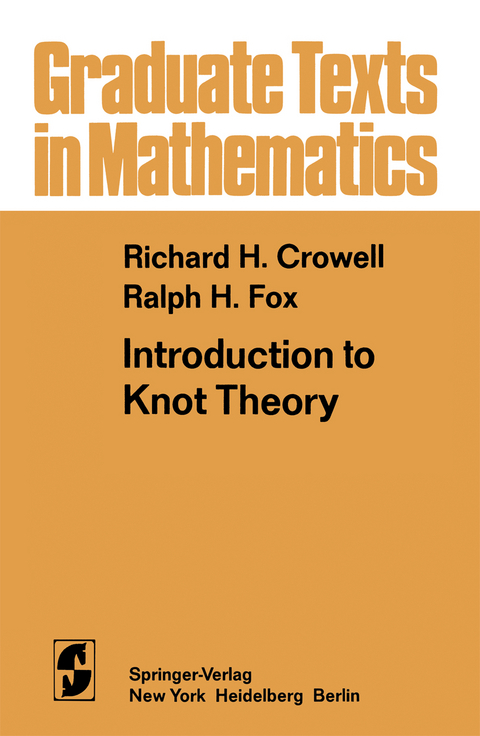
Introduction to Knot Theory
Springer-Verlag New York Inc.
978-1-4612-9937-0 (ISBN)
Prerequisites.- I · Knots and Knot Types.- 1. Definition of a knot.- 2. Tame versus wild knots.- 3. Knot projections.- 4. Isotopy type, amphicheiral and invertible knots.- II ·; The Fundamental Group.- 1. Paths and loops.- 2. Classes of paths and loops.- 3. Change of basepoint.- 4. Induced homomorphisms of fundamental groups.- 5. Fundamental group of the circle.- III · The Free Groups.- 1. The free group F[A].- 2. Reduced words.- 3. Free groups.- IV · Presentation of Groups.- 1. Development of the presentation concept.- 2. Presentations and presentation types.- 3. The Tietze theorem.- 4. Word subgroups and the associated homomorphisms.- 5. Free abelian groups.- V · Calculation of Fundamental Groups.- 1. Retractions and deformations.- 2. Homotopy type.- 3. The van Kampen theorem.- VI · Presentation of a Knot Group.- 1. The over and under presentations.- 2. The over and under presentations, continued.- 3. The Wirtinger presentation.- 4. Examples of presentations.- 5. Existence of nontrivial knot types.- VII · The Free Calculus and the Elementary Ideals.- 1. The group ring.- 2. The free calculus.- 3. The Alexander matrix.- 4. The elementary ideals.- VIII · The Knot Polynomials.- 1. The abelianized knot group.- 2. The group ring of an infinite cyclic group.- 3. The knot polynomials.- 4. Knot types and knot polynomials.- IX · Characteristic Properties of the Knot Polynomials.- 1. Operation of the trivialize.- 2. Conjugation.- 3. Dual presentations.- Appendix I. Differentiable Knots are Tame.- Appendix II. Categories and groupoids.- Appendix III. Proof of the van Kampen theorem.- Guide to the Literature.
| Reihe/Serie | Graduate Texts in Mathematics ; 57 |
|---|---|
| Zusatzinfo | X, 182 p. |
| Verlagsort | New York, NY |
| Sprache | englisch |
| Maße | 155 x 235 mm |
| Themenwelt | Sachbuch/Ratgeber ► Natur / Technik ► Garten |
| Mathematik / Informatik ► Mathematik ► Geometrie / Topologie | |
| ISBN-10 | 1-4612-9937-3 / 1461299373 |
| ISBN-13 | 978-1-4612-9937-0 / 9781461299370 |
| Zustand | Neuware |
| Informationen gemäß Produktsicherheitsverordnung (GPSR) | |
| Haben Sie eine Frage zum Produkt? |
aus dem Bereich


